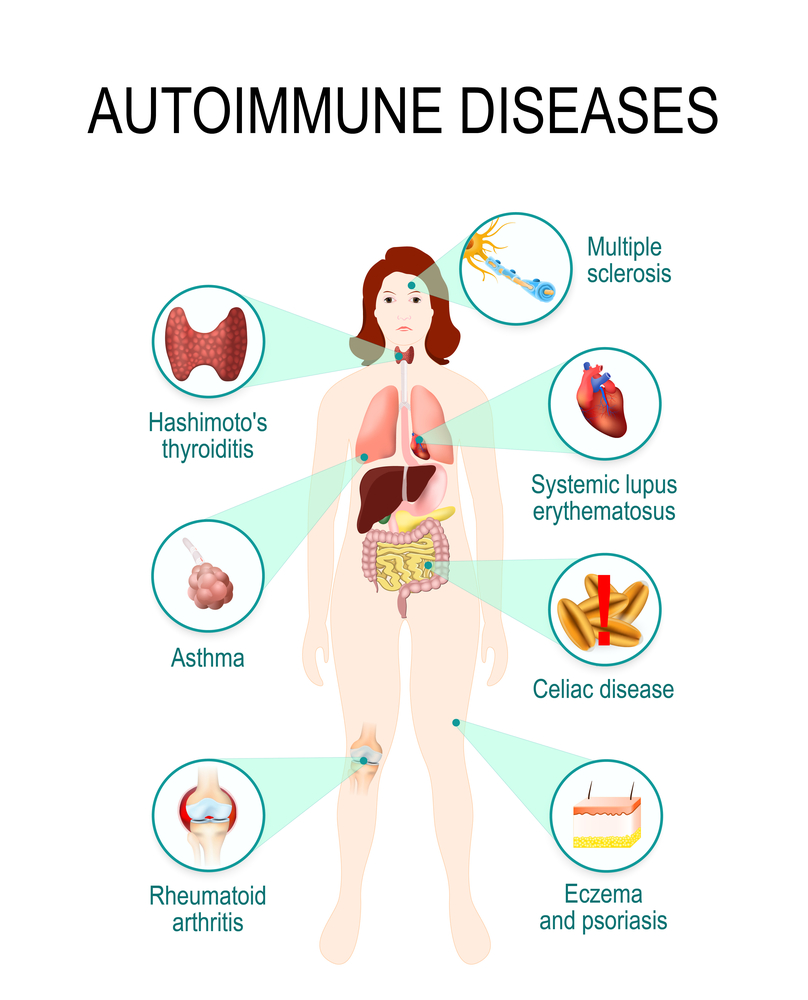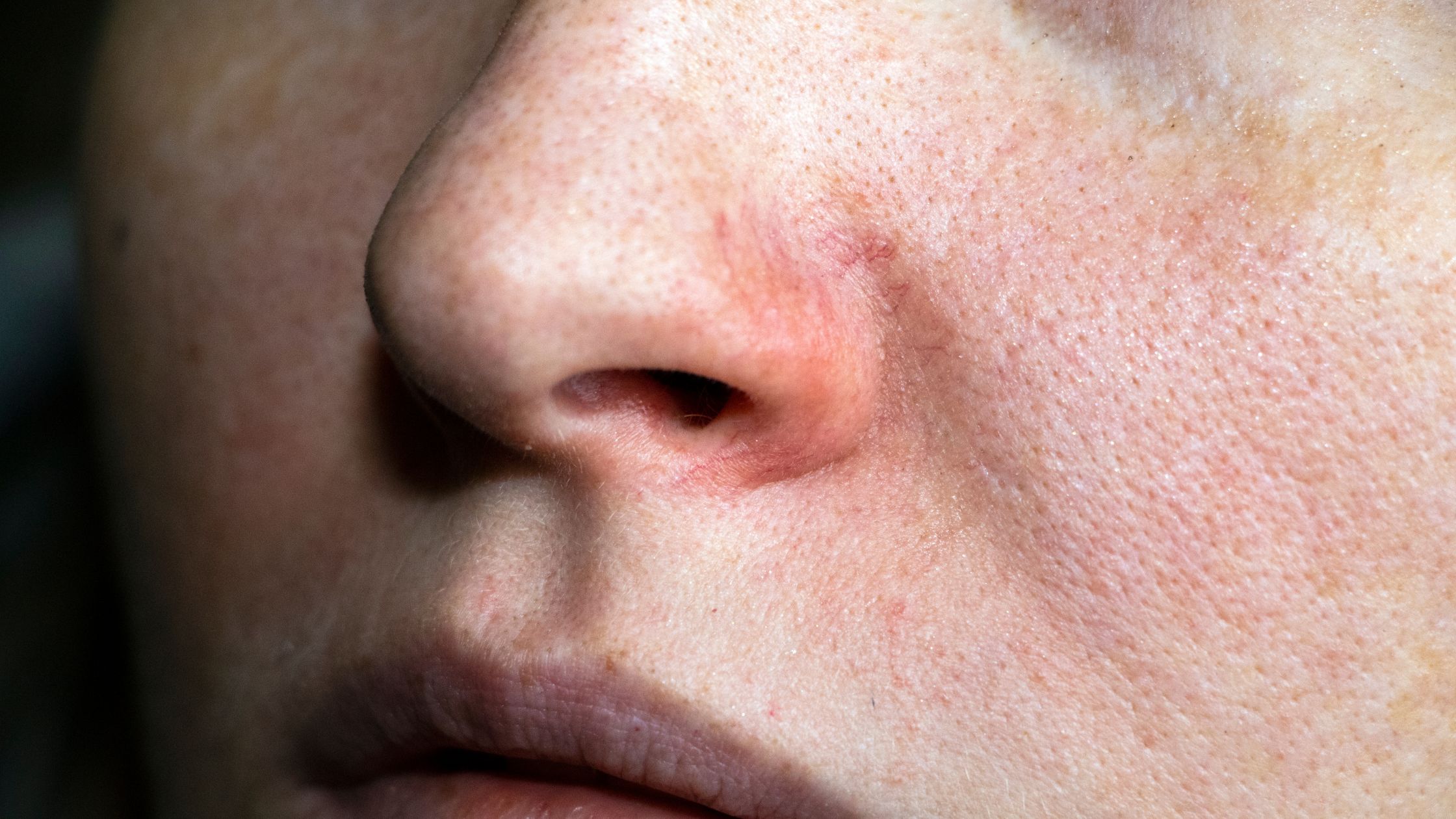What are Autoimmune Diseases?
What are autoimmune diseases?
Autoimmune diseases are a type of condition where the body’s immune system mistakenly attacks healthy tissue.
The immune system is designed to protect the body from foreign invaders, such as bacteria and viruses.
However, in people with autoimmune diseases, the immune system does not function properly and instead attacks healthy cells, tissues, and organs.
There are more than 80 different types of autoimmune diseases, and they can affect any part of the body. (1)
Some of the more common autoimmune diseases include:
- Rheumatoid arthritis: A condition that causes inflammation of the joints.
- Type 1 diabetes: A condition that causes the body to produce too little insulin. (2)
- Lupus: A disease that causes the body to attack its own tissues and organs.
- Alopecia areata: A condition that causes patchy hair loss.
- Psoriasis: A condition that causes the skin to become red and scaly.
- Multiple Sclerosis (MS): A disease that attacks the nerves and causes problems with movement.
- Inflammatory Bowel Diseases (IBDs): A group of conditions (Crohn’s disease and ulcerative colitis) that cause inflammation in the digestive tract.
- Hashimoto’s disease: A condition that causes the body to attack the thyroid gland.
- Celiac disease: A condition that causes the body to have an adverse reaction to gluten.

What causes autoimmune diseases?
The exact cause of autoimmune diseases is unknown.
However, doctors believe that they may be caused by a combination of genetic and environmental factors.
For example, certain genes may make a person more likely to develop an autoimmune disease.
However, the gene alone is not enough to cause the disease.
Environmental factors, such as infection, stress, or chemical exposure, may also play a role in triggering the disease. (3)
Who is at risk of developing autoimmune diseases?
There are a variety of factors that may increase your risk of developing an autoimmune disease.
These include:
- Age: Autoimmune diseases are more common in adults than in children.
- Gender: Women are more likely to develop autoimmune diseases than men.
- Family history: If you have a family member with an autoimmune disease, you are more likely to develop one as well.
- Certain infections: Some infections, such as the Epstein-Barr virus and hepatitis C, may increase your risk of developing an autoimmune disease.
- Being overweight or obese: Being overweight or obese may increase your risk of developing some autoimmune diseases, such as type 2 diabetes and rheumatoid arthritis.
- Smoking: Smoking cigarettes may increase your risk of developing some autoimmune diseases, such as lupus, multiple sclerosis (MS), and rheumatoid arthritis.
- Certain medications: Some medications, such as certain beta-blockers and lithium, may increase your risk of developing an autoimmune disease.
What are the symptoms of autoimmune diseases?
The symptoms of autoimmune diseases can vary depending on the type of disease.
Common symptoms include:
- Fatigue
- Muscle aches and pains
- Joint pain
- Recurring fever
- Rash
- Weight loss
- Abdominal pain
- Diarrhea
- Eye problems
- Swollen glands
- Hair loss
Autoimmune diseases can also cause a wide range of other symptoms, depending on the type of disease.
For example, some autoimmune diseases can cause problems with the heart, lungs, or kidneys.
Others can cause neurological problems, such as paralysis or seizures.
Autoimmune diseases can also affect a person’s appearance.
For example, alopecia areata can cause patchy hair loss, and psoriasis can cause the skin to become red and scaly. (4)
How are autoimmune diseases diagnosed?
Autoimmune diseases can be difficult to diagnose because they often mimic other conditions.
To diagnose an autoimmune disease, your doctor will likely do a physical exam and order a variety of blood tests.
These tests can help to rule out other conditions and confirm the diagnosis of an autoimmune disease.
Your doctor may also order imaging tests, such as X-rays or MRIs, to help assess the damage caused by the disease.
What are the treatments for autoimmune diseases?
There is no cure for autoimmune diseases.
However, there are a variety of treatments that can help to manage the symptoms and slow the progression of the disease.
Treatments for autoimmune diseases include:
- Medications: Corticosteroids, immunosuppressants, and biologic agents can help to reduce inflammation and suppress the immune system.
- Therapies: Physical therapy, occupational therapy, and speech therapy can help to improve function and quality of life.
- Surgery: In some cases, surgery may be necessary to remove damaged organs or correct deformities.
What is the outlook for people with autoimmune diseases?
The outlook for people with autoimmune diseases varies depending on the type of disease.
Some autoimmune diseases, such as type 1 diabetes, can be managed with medication and lifestyle changes.
Other autoimmune diseases, such as MS, can lead to progressive disability.
However, with early diagnosis and treatment, many people with autoimmune diseases are able to live long and healthy lives.
How to prevent autoimmune disease?
There is no sure way to prevent autoimmune disease.
However, you can help to reduce your risk by maintaining a healthy weight, getting regular exercise, not smoking, eating a well-balanced diet, and avoiding exposure to infections.
If you have a family history of autoimmune disease, you may be able to reduce your risk by taking steps to prevent infections and by seeing your doctor regularly for screenings.
What are the complications of autoimmune diseases?
Autoimmune diseases can cause a wide range of complications, depending on the type of disease.
Complications of autoimmune diseases can include:
- Organ damage: Autoimmune diseases can damage any organ in the body. For example, autoimmune hepatitis can damage the liver, and Graves’ disease can damage the thyroid.
- Infertility: Some autoimmune diseases, such as lupus and Graves’ disease, can cause infertility.
- Pregnancy complications: Autoimmune diseases can also cause a variety of complications during pregnancy, such as preterm labor, low birth weight, and stillbirth.
Autoimmune diseases can also lead to a number of other complications, such as fatigue, joint pain, and skin problems.
What to do if you suspect you have an autoimmune disease?
If you suspect that you or a loved one has an autoimmune disease, it is important to see a doctor as soon as possible.
Early diagnosis and treatment of autoimmune diseases can help to prevent serious complications.
Your doctor will likely do a physical exam and order a variety of blood tests to confirm the diagnosis.
The treatment of autoimmune diseases can help to improve symptoms and slow the progression of the disease.




